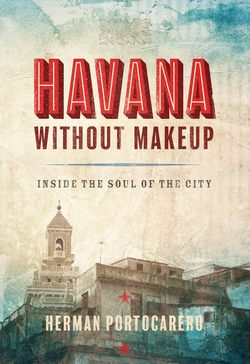Читать книгу Havana without Makeup - Herman Portocarero - Страница 32
На сайте Литреса книга снята с продажи.
Оглавление25.IT TAKES (AT LEAST) TWO TO RUMBA
Even the short British occupation shows how Cuba was always someone’s treasured possession or partner. She was the proudest Spanish colony, and one of the last to be lost, in 1898, plunging Spain herself into a collective depression and into chaotic politics for three-quarters of a century, until Franco’s demise in 1975.
The United States took over in 1900, treating Cuba as a business venture, and Havana partly as a colorful mistress and partly as an always-available prostitute. She became the nearest and most convenient playground to escape puritanism back home in matters of sex and alcohol. Then in 1960 came the Soviets with a new agenda and different interests, making her a pawn in global politics. After a short interregnum, there was Hugo Chávez of Venezuela, more generous and brotherly than any other suitor had been, but more mortal, too. All of them, taking turns, wanted Cuba for themselves.
So Cuba was never short of political dancing partners. But who would become the true love? As of 2012, and certainly after President Chávez’s death in 2013, she was very much on her own for the first time in her history.
Didn’t this come with deep anxieties? Could she afford to play hard to get? It takes two to tango, but acrobatic Cuban rumba can be danced with several partners simultaneously.
Even while Venezuela was still the favorite, Brazil entered the scene in an impressive way, financing the expansion and modernization of the port of Mariel, a project essential to Cuba’s economic future.
Brazil under president Lula also brought its experience of combining a fast-growing economy with a social agenda, and it was becoming a regional powerhouse, a relatively short distance from Havana. Due to its desire to be a regional player, Brazil decided to stay engaged even after being hit by its economic downturn in 2015. The Brazilian discourse toward Cuba was also that Brazil stood for an intelligent twenty-first-century socialism, as opposed to the outdated dogma-ridden variant.
Canada always kept its low-key presence and also stayed politically engaged.
With the United States, the Bush years were mostly a lost era. The relationship was often a rollercoaster. U.S. diplomats frequently pointed out that the United States had made repeated attempts to engage Cuba in a positive way: under President Carter, under President Clinton, and even under the second President Bush, when large-scale trade in foodstuffs was legalized in spite of the embargo. But someone on the Cuban side had always thrown a spanner into the works. President Obama, in his first term, had not fared differently. During those years the United States had greatly relaxed certain aspects of the embargo – family, academic, and religious visits, remittances, commerce – but the arrest and sentencing of U.S. Jewish activist and alleged spy Alan Gross in 2009 blocked rapprochement. This created a new stalemate for official contacts and improvements, although the coast guards of both sides and the DEA maintained a professional relationship.
U.S. universities and think tanks visited Havana regularly, as did individual members of Congress. On the Cuban side, official attitudes towards the United States constantly switched between apocalyptic rhetoric and businesslike cooperation, most notably in consular matters. Most Cubans, on the other hand, simply love the U.S. Many if not most of them have family living there. The United States is the only society many Cubans know, or at least think they know, other than their own. And the older generation is still fanatically addicted to pelota,
